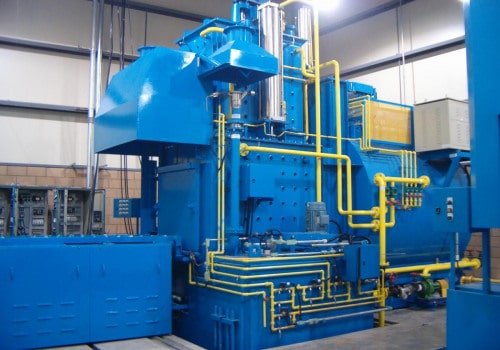Exotic Metals
Newly Adopted Materials
Part of the fun of being in the heat processing industry is the opportunity to work on newly adopted materials and processes that may become big in the future. Furnace builders dream of ground floor entry in the use of a new materials process; strange dreams they be….., but we digress.
After 58 years in the business there is little that we have not seen. The metals that CEC has built furnaces for include many “exotic metals”, including:
- Titanium
- Nickel / Chrome alloys (stainless steel)
- Aluminum
- Brass, copper
- Single grain castings or forgings

For High Strength
The metals have been rolled, extruded, cast and forged prior to entry into the CEC supplied furnace systems. The furnace machinery configurations for processing these parts also come in a wide array of packaging and conveyance methods, some typical examples:
- Roller hearth furnaces
- Batch furnaces
- Car bottom (boogie hearth) furnaces
- Tip-up (clam-shell) furnaces
- Drop bottom furnaces
- Atmosphere retort furnaces
There is a huge range of imaginable and practical processes that encompass these metals. For corrosion resistance a designer may need a precipitation hardened stainless steel that is martensitic. For a high strength axel application a Ferritic stainless steel may be required.
Titanium has been broadly adopted for critical parts such as your golf club or your jets’ landing gear. Titanium can be argon atmosphere solution heat treated followed by aging.
Aerospace
Aerospace seems the most likely future candidate for exotic metals applications, but cars are becoming more sophisticated to meet CAFÉ and occupant safety standards. The car materials are following this same path of improved performance and sophistication.
Over 5o grades of titanium alloys have been compiled to meet current known necessities, the heat treatment requirements for each varies greatly. CEC makes conveyors, manipulators and gantry cranes for exotic metal parts weighing up to 50,000 pounds (22,727 kg). These rugged mechanisms are often used for Quenching or Automation so that parts can be handled in a fully automatic manufacturing cycle during their heat treatment.
For all your exotic metals heat treatment needs and the new ones you may be imagining, please call CEC and see how our application engineers and testing facilities can help


